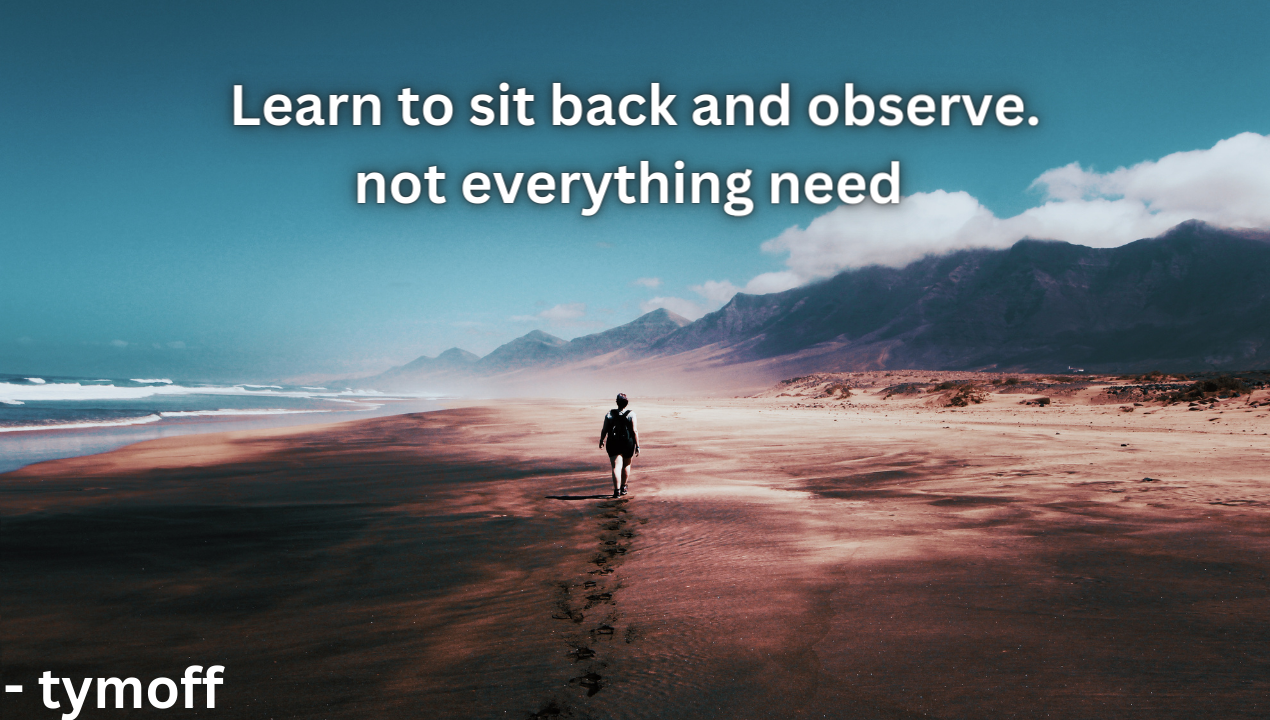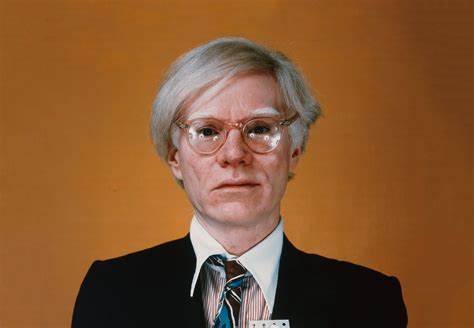Table of Contents
In today’s fast-paced world, we are constantly bombarded with stimuli, from buzzing smartphones to endless to-do lists. Amid this chaos, it’s crucial to “learn to sit back and observe. not everything need – Tymoff.” This profound quote reminds us of the power of patience and observation, emphasizing that not every situation demands immediate action. learn to sit back and observe. not everything need – tymoff
Stepping back and observing is not a sign of weakness. Instead, it is a strategy for clarity and growth. Often, Learn to sit back and observe. not everything need – tymoff when we pause to analyze, we uncover patterns, insights, and opportunities that impulsive reactions might overlook. So how can we adopt this mindset and reap its benefits? Let’s dive deeper.
Why It’s Important to Learn to Sit Back and Observe

The Power of Observation in Decision-Making
When we “learn to sit back and observe. not everything need – Tymoff,” we improve our decision-making abilities significantly. Observation allows us to analyze situations from a neutral perspective, reducing the chances of making hasty, regrettable decisions.
For instance, consider a heated argument at work. Reacting impulsively might escalate the conflict. However, stepping back and observing the situation can provide insights into the root cause of the issue. This approach fosters better communication and long-term solutions.
Additionally, this practice nurtures emotional intelligence. By observing, you understand not only your emotions but also those of others. This awareness is particularly helpful in managing personal relationships and professional interactions.
Learning to Respond, Not React
“Learn to sit back and observe. not everything need – Tymoff” also emphasizes the difference between reacting and responding. Reactions are immediate and often emotional, while responses are thoughtful and measured.
Learn to sit back and observe. not everything need – tymoff For example, if someone criticizes your work, your first instinct might be defensive. However, by observing their words and intent, you might realize the feedback is constructive. This pause can turn a potential conflict into an opportunity for growth.
Moreover, observing before responding saves energy. You avoid unnecessary conflicts and focus on what truly matters, which is crucial in maintaining mental peace.
How to Practice Sitting Back and Observing
Practical Steps to Embrace Observation
- Pause and Reflect: Whenever faced with a challenging situation, take a moment to breathe and reflect. This simple act creates a buffer between stimulus and response.
- Practice Mindfulness: Mindfulness encourages you to focus on the present moment. Observing your thoughts and feelings without judgment can improve clarity and reduce stress.
Incorporating these habits into your daily routine may feel challenging at first, but with persistence, they become second nature.
Observation in Everyday Life
Observation isn’t limited to conflicts or challenges. Everyday scenarios offer opportunities to “learn to sit back and observe. not everything need – Tymoff.”
For example, while walking in nature, take time to notice the colors, sounds, and smells around you. This practice not only boosts mindfulness but also enhances your appreciation for life’s simple pleasures.
Similarly, during conversations, focus on listening rather than formulating your response. Active listening shows respect and helps you build stronger connections.
The Benefits of Sitting Back and Observing
Better Mental Health
When you “learn to sit back and observe. not everything need – Tymoff,” you reduce stress and anxiety. Observing creates a mental space that allows you to process emotions effectively.
Instead of reacting to every trigger, you cultivate a sense of control. This mindset shift promotes calmness, even in high-pressure situations.
Enhanced Problem-Solving Skills
Observation sharpens your critical thinking. By analyzing situations thoroughly, you identify root causes and potential solutions more effectively.
For example, if your team faces a recurring problem at work, stepping back to observe can reveal overlooked patterns. This insight leads to innovative solutions that might otherwise remain undiscovered.
Conclusion
To “learn to sit back and observe. not everything need – Tymoff” is to embrace the power of patience and reflection. In a world where urgency often takes precedence, stepping back allows us to see the bigger picture. It fosters emotional intelligence, better decision-making, and mental peace.
By practicing mindfulness, pausing to reflect, and observing your surroundings, you can transform your approach to life. Remember, not every situation requires immediate action—sometimes, the best response is no response at all.
FAQs
1. Why should I learn to sit back and observe?
Observing helps you understand situations better, make informed decisions, and avoid unnecessary stress.
2. How can I practice observation daily?
Start by pausing before reacting, practicing mindfulness, and actively listening during conversations.
3. What are the benefits of not reacting immediately?
Delaying reactions can improve your relationships, enhance problem-solving skills, and promote mental clarity.
4. Can observation improve my relationships?
Yes, by observing and understanding others’ perspectives, you can communicate better and build stronger connections.
5. Is observation a skill I can develop?
Absolutely! With practice, observation becomes a natural and beneficial part of your daily life.
Read Also: Security Cameras Make Us Feel Safe, but Are They Worth the Invasion?








